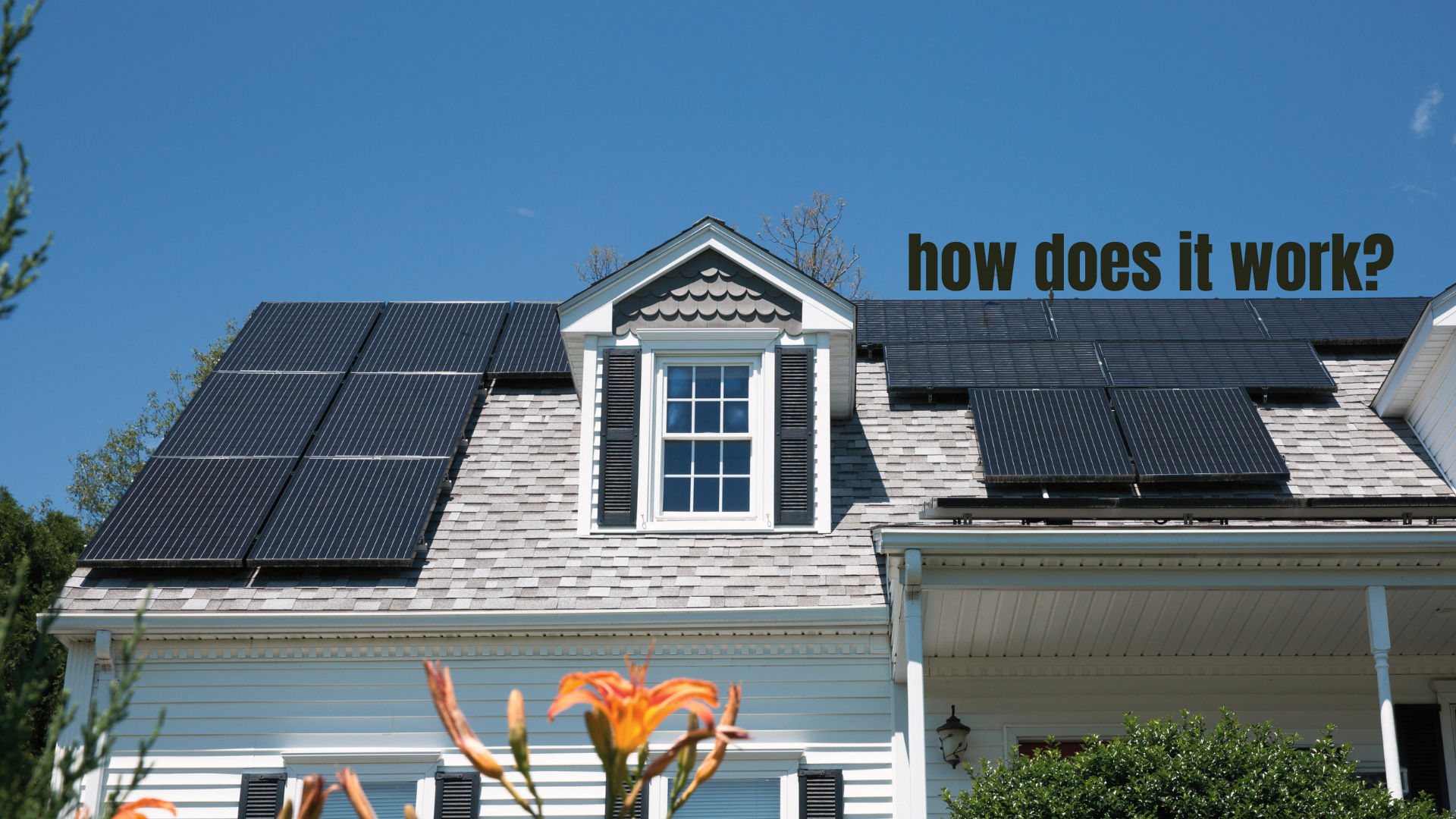The ever-increasing electricity costs and the global awareness of the need for renewable energy sources have started a move towards alternative home energy sources. More and more environmentally-conscious homeowners are turning to solar panels to harness the sun's power to generate clean and budget-friendly electricity. But how do home solar panels work?
Home solar panels work by changing the sun's energy into electricity using photovoltaic (PV) technology. When the sun shines onto the rooftop solar panels, the cells in the panel absorb the photons from the sunlight. This creates an electrical field across its layers, causing a flow of electricity.
There's a growing trend of installing solar panels as alternative energy sources in residential areas. If you're considering the changeover, understanding how solar energy works can help you see its value and whether it's an option for your home. This comprehensive guide demystifies the scientific processes that convert sunlight into electricity and discusses the benefits and other considerations.
How Do Home Solar Panels Work?
Solar panels capture the sun's power, providing an almost endless energy supply. These panels convert it into electricity that you can use to power your home and its appliances, as with traditional energy sources, but they have the added benefits of being environmentally friendly and can save you money in the long run.
Understand the Functions of Solar Panel Components
Each solar panel component plays a crucial role in converting sunlight into energy.
There are also additional components required to make your solar energy system work:
Discover How Panels Create Solar Power
Each solar panel contains many photovoltaic (PV) cells that capture and convert light from the sun into useful types of energy. A single PV cell is small, usually only producing 1-2 watts of power. These are made of semiconductor materials, typically silicon.
To increase the power output of these cells, they are linked together in chains to create the larger panels. Panels, also called modules, can operate individually, or you can connect them to form arrays.
These arrays connect to the electrical grid. When exposed to sunlight, these cells initiate a process called the photovoltaic effect, where photons (particles of light) energize electrons within the semiconductor, causing movement and a resulting electric current. The inverter converts it into power suitable for home use.
How to Maximize Solar Energy Production
The object of a home solar system is to replace traditional power sources. Various factors will affect the efficiency of your solar panels.
Install Panels With The Correct Orientation.
The orientation of solar panels is a crucial factor in producing the maximum amount of energy. The rule of thumb is that the panels should face true south in the northern hemisphere. In the southern hemisphere, the opposite applies – they must face true north.
The Angle Can Affect Energy Production.
Solar panels work most efficiently when they are perpendicular to the incoming sunlight. You can achieve this by mounting panels on tracking systems that follow the sun's path, which can have single or double axes. These apply primarily to ground-mounted panels because they may be too heavy for roof-mounted systems.
Shade And Obstructions Can Decrease Efficiency.
Shade from trees, buildings, or other obstructions can significantly reduce a solar panel's efficiency. Consequently, it's essential to install panels in areas with the least shading. If this is unavoidable, buy a system with power optimizers or microinverters. This allows home solar panels to work independently, preventing a disproportionate energy loss from one or two shaded units.
Reasons to Install Home Solar Panels
Once you've discovered how home solar panels work and how to optimize their efficiency, you will understand why installing them on your property is an excellent idea.
Solar Energy Is Cost-Effective
Home solar panels can provide power for some or all residential needs, depending on the number of units installed. This means your household draws less or no power from the grid, radically reducing your utility bills.
If your solar power system is grid-tied, net metering is another way of saving on utility bills. It's a billing system that rewards homeowners for feeding excess electricity back into the grid. Net metering causes a user's meter to run in reverse, crediting them with the electricity used at night or when they use more than their solar panels generate.
Installing solar panels is more affordable than in years gone by due to the federal residential solar tax credit. This allows taxpayers to claim a 30% rebate on their solar panel costs on their annual income tax returns. (Related article: The Cost of Solar Panels in Florida: Is it Worth it?)
Home Solar Panels Generate Clean Energy.
Electricity sourced from the sun is infinitely sustainable and clean. There will be solar energy for as long as the sun continues to shine. Solar panels also have a low carbon footprint, with an average lifespan of about 25 years. Manufacturers often use recycled materials when building the panels to further reduce the carbon footprint.
Home Solar Power Systems Are Low-Maintenance.
Solar panels installation is quick and easy, and they require almost no maintenance, besides the occasional cleaning about once a year.
Final Thoughts
Tiny particles of sunlight called photons make a huge impact on generating environmentally friendly power. The PV cells inside home solar panels work by absorbing these photons and converting them into electrical energy, offering financial and environmental benefits first to homeowners and then the global community as they generate cleaner energy one household at a time.


